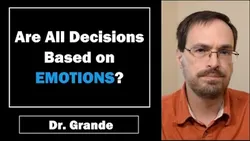
Theories of Counseling 
This course provides an overview of the major theories of counseling, including emotion vs. cognition in decision-making, life coaching, solution-focused therapy, dialectical behavior therapy, antisocial personality disorder, borderline personality disorder, schema therapy, reality therapy, analytic psychology, cognitive therapy, rational emotive behavior therapy, person-centered therapy, motivational interviewing, psychoanalytic theory, narrative therapy, gestalt therapy, behavior therapy, and reality therapy. Students will learn about the various techniques used in each theory and practice role-playing to apply the theories in real-world scenarios. ▼
ADVERTISEMENT
Course Feature
![]() Cost:
Cost:
Free
![]() Provider:
Provider:
Youtube
![]() Certificate:
Certificate:
Paid Certification
![]() Language:
Language:
English
![]() Start Date:
Start Date:
On-Demand
Course Overview
❗The content presented here is sourced directly from Youtube platform. For comprehensive course details, including enrollment information, simply click on the 'Go to class' link on our website.
Updated in [May 25th, 2023]
Theories of Counseling is a comprehensive course that covers a wide range of topics related to counseling and psychotherapy. Learners can gain an understanding of the different theories of counseling, including psychoanalytic, analytic, Adlerian, existential, person-centered, Gestalt, behavior, reality, narrative, solution-focused brief, cognitive, and rational emotive behavior therapies. They can also learn about the role-play techniques associated with each theory, such as defense mechanisms, free association, push-button technique, "acting as if" technique, empty chair technique, two-chair technique, externalizing the problem, finding exceptions to the problem, miracle question, grounding and awareness techniques, and complicated grief. In addition, learners can explore related topics such as emotion vs. cognition in decision-making, life coaching, antisocial personality disorder, borderline personality disorder, schema therapy, and choice theory. This course is ideal for those who are interested in learning more about counseling and psychotherapy, as well as those who are looking to develop their counseling skills.
[Applications]
Upon completion of this course, students should be able to apply the theories of counseling to their own practice. They should be able to identify the different types of counseling theories and their applications, as well as understand the role of emotion and cognition in decision-making. They should also be able to identify the various treatment strategies for different personality disorders, and be able to apply the various techniques of each counseling theory to their own practice. Additionally, they should be able to identify the limitations and criticisms of each counseling theory, and be able to compare and contrast different counseling theories.
[Career Paths]
1. Counselor: Counselors provide emotional support and guidance to individuals, couples, families, and groups. They help clients identify and work through personal issues, such as depression, anxiety, and relationship problems. Counselors also provide advice and resources to help clients make positive changes in their lives. Developing trends in counseling include the use of technology, such as telehealth, to provide counseling services remotely, as well as the use of evidence-based practices, such as cognitive-behavioral therapy, to help clients achieve their goals.
2. Life Coach: Life coaches help clients identify and achieve their personal and professional goals. They provide guidance and support to help clients make positive changes in their lives. Developing trends in life coaching include the use of technology, such as video conferencing, to provide coaching services remotely, as well as the use of evidence-based practices, such as positive psychology, to help clients achieve their goals.
3. Psychotherapist: Psychotherapists provide mental health services to individuals, couples, families, and groups. They help clients identify and work through mental health issues, such as depression, anxiety, and trauma. Psychotherapists also provide advice and resources to help clients make positive changes in their lives. Developing trends in psychotherapy include the use of technology, such as telehealth, to provide psychotherapy services remotely, as well as the use of evidence-based practices, such as dialectical behavior therapy, to help clients achieve their goals.
4. Mental Health Counselor: Mental health counselors provide mental health services to individuals, couples, families, and groups. They help clients identify and work through mental health issues, such as depression, anxiety, and trauma. Mental health counselors also provide advice and resources to help clients make positive changes in their lives. Developing trends in mental health counseling include the use of technology, such as telehealth, to provide counseling services remotely, as well as the use of evidence-based practices, such as schema therapy, to help clients achieve their goals.
Course Provider

Provider Youtube's Stats at AZClass
Discussion and Reviews
0.0 (Based on 0 reviews)
Explore Similar Online Courses

Transition into Product Management Become a Product Manager

Learn terraform by setting up Highly available wordpress

Python for Informatics: Exploring Information

Social Network Analysis

Introduction to Systematic Review and Meta-Analysis

The Analytics Edge

DCO042 - Python For Informatics

Causal Diagrams: Draw Your Assumptions Before Your Conclusions

Whole genome sequencing of bacterial genomes - tools and applications

Use this PTSD Treatment Plan in Your Counseling Practice

Graphology Free Course: 7 Negative Handwriting Sign Types!


Start your review of Theories of Counseling